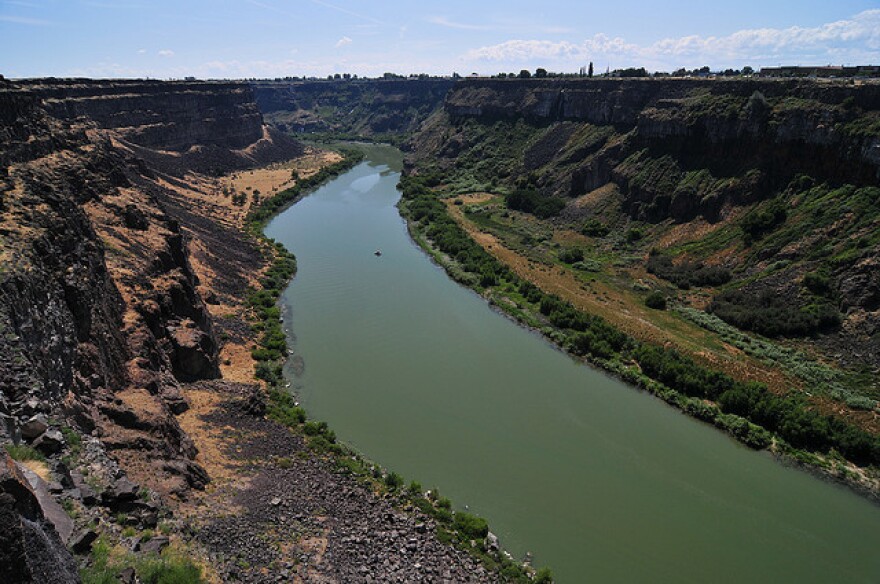Idaho is famous for its crystal clear rivers. But these days, the Snake River is not one of them.
The Snake is the state’s largest river and it makes southern Idaho’s agriculture economy possible. But that industry is also polluting the Snake.
The U.S. Geological Survey uses words like ‘degraded’ and ‘impaired’ to describe parts of the river. Richard Manning calls the Snake “Idaho’s sewer system.”
Manning is a well-known environmental writer who has blasted industrial agriculture in books like “Against the Grain.” Last month, Manning took Idaho’s giant dairy industry to task in an article in the magazine High Country News.
“They’re building up mountains of manure…and sooner or later that stuff gets to the river simply because water flows downhill,” Manning says. "The Snake River removes it for a ways and then it piles up behind the dams.”
Manning says run-off from manure and synthetic fertilizers is filling the Snake River with nutrients like nitrogen and phosphorus. In the river, they fertilize algae just as they fertilize corn and alfalfa in farm fields. Algae blooms deplete oxygen which kills fish and other aquatic life.
Manning believes the only sure way to fix the problem is to drastically ramp down agriculture in the Snake River Plain. He admits given Idaho's politics and economy, that's not realistic.
He says regulating things like how nitrogen is applied to fields could help some. But to do that the political climate of Idaho would have to change drastically.
"Idaho is notoriously reticent to regulate anything," Manning says. "That's part of the reason the dairies built up there. State officials literally told me they recruited the feed lots to southern Idaho by advertising the fact they didn't regulate a whole lot."
Find reporter Adam Cotterell on Twitter @cotterelladam
Copyright 2014 Boise State Public Radio


